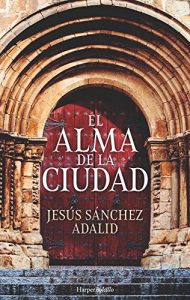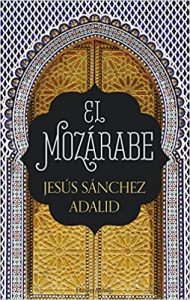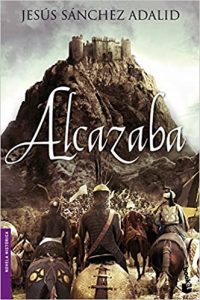If there is a singular author in the current Spanish literary scene, that is Jesus Sánchez Adalid. Writer by necessity, judge for a time by profession and finally priest by vocation ... Although in addition we would also have to cite his contributions in the press of various kinds.
He is undoubtedly a restless type where there are those who has finally found his space between the profession of his Catholic religion and the intellectual devotion to literature.
And the mixture works (at least in the literary aspect that is what I know). Because Jesús Sánchez writes very good historical novels that narrate fast-paced adventures and that, contrary to what one might think in the case of a priest, are completely open to very different beliefs, ideologies and popular imaginaries, as well as historical aspects of very different times.
Since the narrative work of Jesús Sánchez Adalid began to be disseminated, back in the year 2000, there has not been a year in which a new passionate historical novel with large doses of mystery and a laudable desire for dissemination and entertainment did not come out.
Top 3 recommended novels by Jesús Sánchez Adalid
The soul of the city
A novel centered on the Spanish Reconquest written by a priest can be thought of as a Catholic harangue, an exaltation between the patriotic and the religious. And yet Jesús Sánchez Adalid ended up writing a novel far removed from any dogmatic intention in the Catholic thing or in any other aspect.
Facts narrated with the complete verisimilitude of written History, with the brilliant detail of the anecdote that makes us know the name change of Ambrosía (too associated with the worldly pleasure of Greek mythology), by Plasencia, (with a meaning closer to a place like to live).
We are precisely located in Plasencia, the army under the orders of King Alfonso VIII has already given a good account of these lands for the new Christian cause.
And that's when we discover the fascinating character of Blasco Jiménez, a kind of Adso de Melk (the friar's young assistant in The Name of the Rose). Blasco reminds me of the young man in the famous book in the sense that he feels halfway between the religion of a convinced teacher and the drives, concerns and curiosities of his youth.
Blasco Jiménez ends up approaching carnal pleasures, even esoteric. Some time later, good old Blasco Jiménez will arrive at the Toledo School of Translators, and when he returns to Coria, the disputed enclave of the reconquest, he can begin to tie up the ropes of his own destiny thanks to a surprising secret that awaits him, as a layout of in advance by a clerk who was waiting for you ...
The Mozarabic
There is no doubt that the History of Muslim Spain is also worthy of consideration. In fact, the establishment of a kind of independent Hispanic Emirate, established in 929 by Ab al-Rahman III gave an autonomy to the new peninsular territory that ended up deriving, thanks to its strategic geographical location and probably a wise political direction, in a brilliant period that turned Córdoba into an imperial city with political and commercial power in that nerve center of the world that was Mediterranean Europe.
In this setting we meet Abuamir, a Muslim, and Asbag, a Mozarabic. Both are two young men whose lives intersect. And they will also be two great men who, from the second row, will launch into their successful careers in very different aspects.
Asbag, the learned Mozarabic, will eventually become an influential, well-traveled, learned person capable of advising great historical figures. Abuamir, the Muslim, takes very different paths and manages to be a great political and military strategist, until he is recognized as the great Almanzor ...
Alcazaba
Like a Spanish Ken Follett, Jesús Sánchez Adalid traces one of those plots that move passionately and parallel to real history.
La Mérida from the XNUMXth century is the place where we will move to discover the future of some magnetic protagonists, completely empathetic. Nothing better than discovering a past world than the ability of an author to get into the skin of the characters that move in the scene.
And Jesus Sánchez Adalid succeeds. With the epic point of a convulsed Spain and Mérida as a latent tinderbox of Christian, Muladi, Jewish, Arab or Berber cultures ..., the imminent war narrative with its epic touch slides between the walls of the Alcazaba, in the same way that Those cold walls serve as a parapet for the amorous adventures of an unleashed Muhamad or the conspiracies of Claudius the Christian or of Abderramán II.
The alliance of civilizations as a marriage of convenience, until the slightest disagreements end up unleashing the conflict ...



